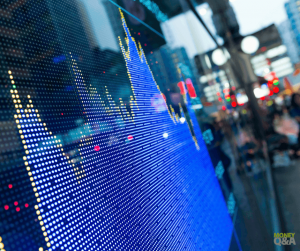 At first glance, it seems like a pretty innocuous question: Should you trade or invest your money? However, upon closer inspection, there are significant differences between trading and investing. In fact, these two financial activities are worlds apart and you’re about to understand why you need to have a clear focus on your personal financial profile. A quick distinction between trading and investing is important to differentiate the two.
At first glance, it seems like a pretty innocuous question: Should you trade or invest your money? However, upon closer inspection, there are significant differences between trading and investing. In fact, these two financial activities are worlds apart and you’re about to understand why you need to have a clear focus on your personal financial profile. A quick distinction between trading and investing is important to differentiate the two.
Trading – is defined as exchanging funds (money) for a financial asset, typically stocks, commodities, currencies or indices. When you trade, you go all-in on the deal from the get go. Your objective in trading is to capitalize on an imminent change in market variables. In other words, if you expect interest rates to rise tomorrow, you would buy the USD ahead of the announcement. Or, you would sell gold ahead of the announcement. Trading has a short-term focus. You are not holding the underlying asset for the purposes of adding it to your financial portfolio over the long-term.
Investing – this is the opposite of trading. You’re not looking for short-term gains – you’re looking for long-term appreciation of the underlying financial asset. When you invest in something, you plough resources into it over a prolonged period of time, hoping for that asset’s appreciation. At the end of the investment period, you hope to accumulate gains in the form of profits. The perspective and the motive for investing are worlds apart from that of trading. As the world-famous billionaire investor/entrepreneur Warren Buffett puts it: ‘When we buy a stock we are buying a part of a tangible business and the future earnings it generates’. This is central to the concept of investing.
But at the end of the day – it’s all about money. How much of it you can make from putting your hard-earned resources into an underlying asset and hoping for it to generate returns. Buffet’s rule when it comes to investments is as follows: Acquire the asset at a sensible price, provided the management is able, honest and capable, with excellent economics and then monitor whether these qualities in the business are being preserved. It is quite an undertaking, but one that will pay dividends in the long term.
Are you a trader or an investor?
This is not necessarily a question that should be answered right off the bat. Some people are a combination of both, and that’s probably the right approach to adopt. Renowned financial planner and trading expert, Jim Cramer considers himself an investor when he tests the market for a particular financial asset with a small amount of capital, and then waits for that asset to be a value-driven investment by purchasing more of it. As a trader, he goes all in on an underlying financial instrument when he expects certain macro economic variables or company-related information to pay dividends (for example quarterly earnings, the appointment of a new CEO, mergers, acquisitions etc.).
Leading Weiss Finance expert Brad Paliatakis believes that there is a fundamental difference in thinking between traders and investors: “As an investor, you always want to get your asset at the lowest possible price. Because your goal is appreciation of the underlying asset, you must buy low and sell high. Or, the alternative is to simply wait for dividends to be reinvested in the stock, so that you can buy more of it as it appreciates over time. When things are purchased for trading purposes, it’s important to be able to pull the trigger when things sour. A trade is meant to yield a certain outcome (profitability), but if it moves in the opposite direction, let go and live to trade another day.”
